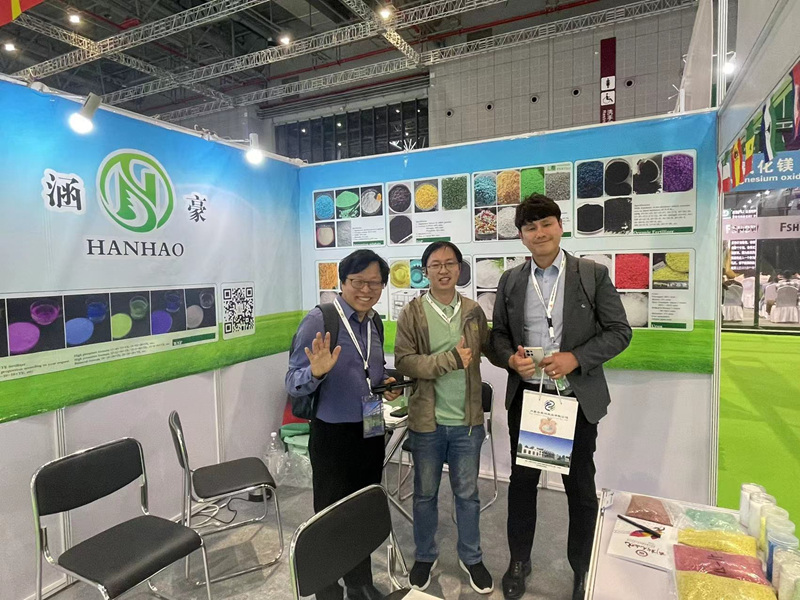
Nov . 19, 2024 01:21 Back to list
water soluble fertilizer 20-20-20+te manufacturer
Understanding Water-Soluble Fertilizer 20-20-20 + TE A Guide for Manufacturers and Consumers
Water-soluble fertilizers have become an essential component in modern agriculture and horticulture, providing plants with the necessary nutrients in a readily available form. Among various formulations, the 20-20-20 + TE (trace elements) water-soluble fertilizer stands out due to its balanced nutrient composition and versatility. This article explores the formulation, benefits, applications, and the responsibilities of manufacturers in providing high-quality products.
What is Water-Soluble Fertilizer 20-20-20 + TE?
The designation 20-20-20 refers to the N-P-K ratio of the fertilizer, meaning it contains 20% nitrogen (N), 20% phosphorus (P), and 20% potassium (K). This balanced ratio is particularly advantageous for promoting general plant growth, as these three macronutrients play crucial roles in crucial biological processes
1. Nitrogen (N) Essential for vegetative growth, nitrogen contributes to chlorophyll production, promoting lush green foliage and healthy stem development. 2. Phosphorus (P) Vital for root development, flower formation, and fruiting, phosphorus aids in energy transfer and photosynthesis processes.
3. Potassium (K) Important for overall plant health, potassium helps regulate water usage, enhances disease resistance, and improves fruit quality.
The addition of trace elements (TE) – such as iron, manganese, zinc, and copper – enhances this formulation by providing micronutrients that are essential in smaller quantities but critical for various physiological functions within plants.
Benefits of 20-20-20 + TE Fertilizer
The advantages of using water-soluble fertilizer 20-20-20 + TE include
1. Rapid Nutrient Availability Being water-soluble, this fertilizer is quickly absorbed by plants, leading to faster and more efficient nutrient uptake compared to granular forms.
2. Versatility It is suitable for a wide range of crops, including vegetables, flowers, and ornamental plants, making it a favorite among farmers and gardeners alike.
3. Ease of Use This formulation can be easily mixed with irrigation water, making it convenient for both small-scale gardens and large agricultural operations.
4. Improved Crop Quality The balanced nutrient supply, combined with trace elements, tends to enhance plant growth, leading to improved yield and quality of the produce.
water soluble fertilizer 20-20-20+te manufacturer

Applications in Agriculture and Horticulture
Water-soluble fertilizer 20-20-20 + TE is widely used for
- Fertigation This method combines irrigation and fertilization, enabling precise nutrient delivery directly to the plant roots. - Foliar Feeding Applying the fertilizer as a foliar spray can quickly address nutrient deficiencies, especially during sensitive growth stages, such as flowering or fruiting. - Hydroponics In soilless cultivation systems, this fertilizer provides essential nutrients that might otherwise be lacking in the inert growing mediums.
Responsibilities of Manufacturers
Manufacturers of water-soluble fertilizer 20-20-20 + TE have several responsibilities to ensure product quality and consumer safety
1. Quality Control Ensuring that their products meet the specified nutrient ratios and are free from contaminants is essential for maintaining consumer trust and product efficacy.
2. Research and Development Continuous innovation to improve formulations based on the latest agricultural research helps keep pace with changing farming practices and crop requirements.
3. Education Providing users with clear instructions on application rates, methods, and compatibility with other products ensures that consumers can achieve optimal results while minimizing environmental impacts.
4. Sustainability Practices Implementing environmentally friendly practices during production and encouraging responsible use of fertilizers can contribute to sustainable agriculture.
Conclusion
Water-soluble fertilizer 20-20-20 + TE offers a balanced solution for delivering essential nutrients to various crops effectively. Its rapid availability, versatility, and ease of application make it a favorite among growers. Manufacturers play a vital role in ensuring the quality and effectiveness of these products, thus supporting healthier plants and sustainable agricultural practices. As agriculture continues to evolve, the significance of such fertilizers will undoubtedly grow, leading to more productive and sustainable farming systems.
-
10 10 10 Fertilizer Organic—Balanced NPK for All Plants
NewsJul.30,2025
-
Premium 10 10 10 Fertilizer Organic for Balanced Plant Growth
NewsJul.29,2025
-
Premium 10 10 10 Fertilizer Organic for Balanced Plant Growth
NewsJul.29,2025
-
Premium 10 10 10 Fertilizer Organic for Balanced Plant Growth
NewsJul.29,2025
-
50 Pound Bags of 13-13-13 Fertilizer for All Plants – Bulk & Organic Options
NewsJul.28,2025
-
High-Efficiency 15-30-15 Granular Fertilizer for Healthy Crops
NewsJul.28,2025
